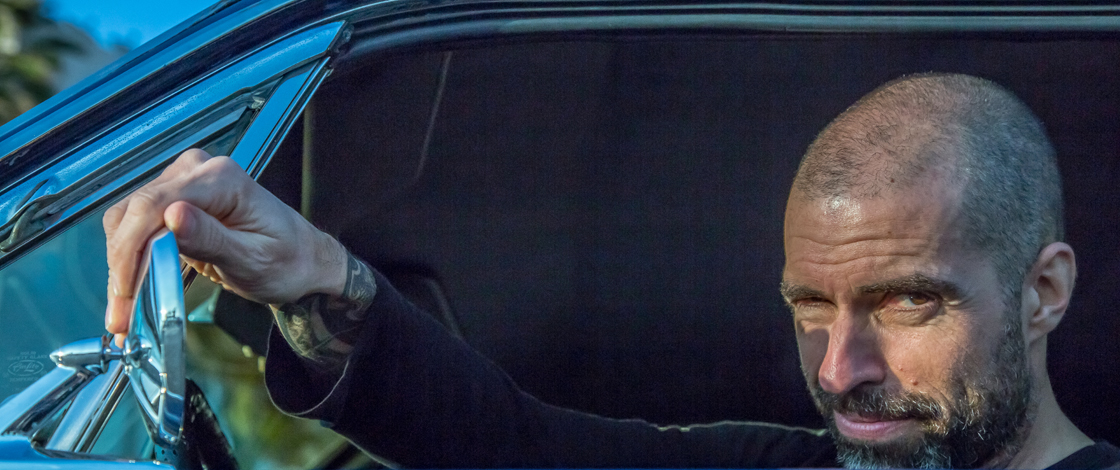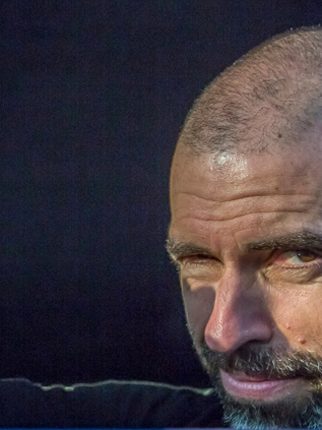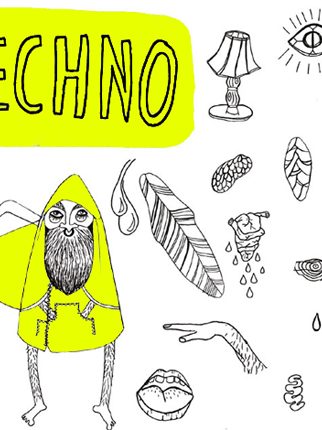On the Road With Chris Liebing

Since shuttering his extremely popular CLR label last year, Chris Liebing has been on a journey of self-discovery. It led the German DJ to Los Angeles, where last year he purchased a 1965 Ford Mustang that he keeps safely stored in Southern California while he remains a resident of Frankfurt. During one of his Los Angeles visits, we cruised with Liebing along the canals of Venice, where he is renting a “bohemian bungalow” to capture the complete Cali experience.

“I’ve been obsessed with California since skateboarding came to Germany in the ‘70s,” the 47-year-old fondly recalls. “The beach, the bikinis, the whole culture seemed magical to a kid living in Europe.”
The classic car, the career changes, and the California crush are more than a midlife crisis. Rather, it is all a statement of liberation for the techno icon who, after years in the driver’s seat, is ready to share the road.
Insomniac went along for the ride.

Chris Liebing: When I was an exchange student in high school, I knew a girl who drove a ‘64 yellow convertible Mustang. It was amazing, so beautiful. I was like, “One day, I’ll get something like that!” Last year, I told [L.A. techno producer] Drumcell that I wanted a classic car, and he says, “My cousin is selling his Mustang because he is moving back to Mexico.” That’s it! That’s my first classic car!
Does that show, in addition to your personal desire to spend more time out here, a kind of optimism for where techno is going, where your career is going?
CL: There is some truth to that. I never knew techno would bring me to Los Angeles, but it’s kind of a self-fulfilling prophecy: I want to be here, so I put energy into finding people to work with here. I ended up working with Alessandro Cuttini, and now with Wes Eisold from Cold Cave. There are great studios here that I want to visit, people I want to talk to, learn from, engineers that all live here, that have studios here. Something drove them all to come here. Is it a coincidence that you get the best classic cars in the world? I don’t know.
It’s perfect weather for it.
CL: Maybe that’s the common denominator. You are right: There is a certain optimism that brings me here, but it also drives me to make more music in order to have more reasons to come here and more reasons to drive my car.
I feel like Germans, maybe more than other Europeans, have this sense of Americana.
CL: It is true. Where I grew up, in Giessen, we had a huge army base, and we had the PX—supermarkets and shopping malls for the Americans. We knew some soldiers that would sneak us in so we could buy American products that you couldn’t get in Germany.
Like what?
CL: Sodas—like root beer, for example. Even the pizza places were different than the Italian pizza places that we had. The soldiers influenced the music, as well. They had clubs that played modern American music, especially hip-hop, that we would not hear in typical German clubs. So America had a huge influence on us. I always had a positive view on America, and especially California.
What about New York?
CL: It’s an amazing city! If I had to move to one of these cities tomorrow, it would be really hard to decide. I have a really nice connection with New York. I have a really nice fanbase there, and I’m working on one in Los Angeles, too.

How does one build an audience in a certain place?
CL: I don’t think you can really build it. You go to a place; you love the place, so there’s a certain energy about it that makes it more special. I noticed it last night when I played at Exchange LA. Just knowing I’m in L.A. made it really special for me. That might be what people notice. You feel connected to the fanbase, and that fanbase feels connected to you.
I know that you play Output in NYC a lot; you do all-night sets there.
CL: Absolutely! Growing up in Europe, we are used to play long sets. We have different closing hours. The first time I had the opportunity in New York to do that, I could show off what I’d learned from when I was a young DJ, and people just understood it.
You also just did one of your first b2b sets in Miami. Tell me about that.
CL: Yes, I played with Rich Hawtin back-to-back for the first time, and with Dubfire for the first time as well.
All three of you? Or you did two back-to-back sets?
CL: I did a seven-hour back-to-back with Dubfire at Space, and a two-hour set with Richie. I never really did back-to-back sets. I do the Collabs shows with Speedy J, but that’s not really a back-to-back set. We are making music together. [In Miami] we played on Richie’s new Play Differently mixer. It’s perfectly made for back-to-back sets. It has two headphone jacks and two cue buttons. It’s such a little technical detail, but it makes a huge difference when you play together.
I think two years ago, what you were playing and what Dubfire plays wouldn’t necessarily work together.
CL: Not so much—but then again, it still doesn’t, really; my basslines are straighter, and his are a bit more rolling. It could have been a disaster, but I think with our experience as DJs, we know how to make it work. I didn’t know that I could adapt so easily!

You were the captain of your CLR label [which is on hiatus], and now it’s like you’re playing in the All-Star Game.
CL: It’s so exciting. With CLR, I was always stuck to certain ideas. I noticed that while playing back-to-back, even if it wasn’t going in the direction that I wanted to, I just had to let go of that idea and enjoy the moment and see where this took us—like letting of your ego.
Do you see this opening up to new audiences?
CL: Oh, yeah! I’m finalizing an album now and looking for a label. I have some in mind that I can’t talk about, because if it doesn’t work out, everybody is going to laugh at me. But it definitely goes into a whole new direction—not necessarily musically, but idea-wise and possibility-wise. As long as I stay true to myself, I can look in the mirror and say, “What I’m doing, I can totally stand behind it.”
All photo credit goes to Dustin Downing.
Follow Chris Liebing on Facebook | Twitter



